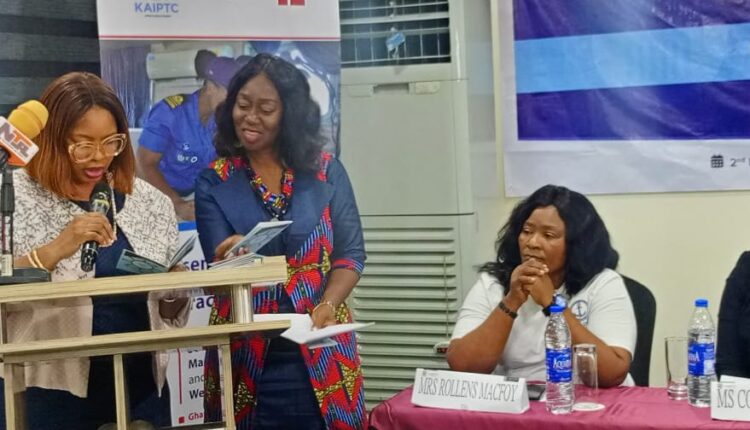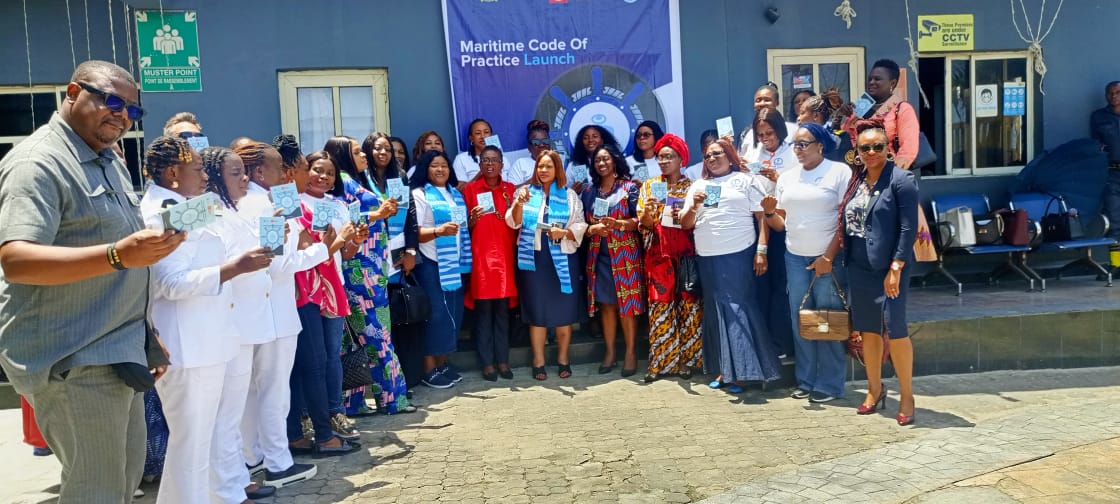The Kofi Annan International Peacekeeping Training Centre (KAIPTC) in Accra, Ghana, with support from the Government of Denmark, on Thursday in Victoria Island, Lagos, launched the Maritime Code of Practice to protect women in maritime security.
In her opening remark, Dr. Emma Birikorang, the Acting Director of Faculty of Academic Affairs and Research at KAIPTC, said that the launch in Lagos, was the second in the series that would be done in seven African countries.
“This programme is the second in a series of seven ceremonies in which a pioneering document concerning the welfare and advancement of women in the maritime domain will be launched in seven countries namely: Cameroun, Congo-Brazzaville, Nigeria, Ghana, Cote d’Ivoire, Liberia and Senegal,” She said.

Dr. Birikorang disclosed that the Code of Practice for Women in the maritime security domain was an offshoot of the support by the Government of Denmark on the project “Integrated Responses to Threats to Maritime Safety and Security in the Gulf of Guinea Maritime Domain in West and Central Africa” 2022-2026.
She noted that the KAIPTC programme extended the principles of the UN Security Council Resolution 1325 into the maritime security domain, as it urges all actors to increase the participation of women and incorporate gender perspectives in all peace and security efforts.
According to her, the KAIPTC has done this by: “producing a set of guiding principles that should guide decision- makers in the maritime domain to preserve and promote the welfare and advancement of women in the maritime domain especially in the Gulf of Guinea. Indeed, women in the maritime industry deserve career protection, preservation of the welfare and promotion of their interests.”
Speaking also, President of the Women’s International Shipping and Trading Association (WISTA), Dr. Odunayo Ani, said that the launch of the code of practice protecting women in maritime security heralded stronger commitment to gender equality, as well as improved protection for women working in the maritime industry.
Dr. Ani also urged industry players on the importance to make the code work indeed as a welcome direction for the overall good towards remarkable progress.
“The Maritime Code of Practice we unveil is more than a document; it is a commitment to change, a beacon guiding us towards a future where women are empowered to stand at the helm, to navigate through storms, and to lead with strength and wisdom.
“As we launch this Code, we acknowledge the waves of progress made by those who sailed before us, the women who broke through barriers and the allies who supported their journey. Their legacy is our foundation, and their triumphs have set the sails for our voyage ahead.
“Let this Code be a compass that directs our actions, a map that leads us to uncharted waters where equality and diversity thrive. Let it be a declaration that in the realm of maritime security, women are not just participants; they are pioneers, they are leaders, they are the vanguard of a more just and prosperous industry.”
Also speaking, the President of African Women in Maritime (WIMA) Nigerian Chapter, Mrs. Rollens Macfoy, described the newly launched document as one that organizations within the maritime sector are expected to own and implement.
Her words: “KAITPC has actually coordinated a policy as the code of practice. So we have a policy statement of some sort that looks at issues of monitoring and reporting on the processes for the code of practice as it relates to women in the maritime space.
“We need to internalize this code. There are also aspects around conflict sensitivity, issues on prevention and mitigation of gender-based violence, as well as increasing the representation of women. So it is up to us to take these documents to our various organizations, institutions, and say, well, this code of practice is here. It is a good document that we can put in our standard operating procedures (SOPs) that will support the advancement of women in the maritime domain.”
In her contributions, Mrs. Constance Omagbemi, Assistant Chief Legal Officer Nigerian Maritime Administration and Safety Agency (NIMASA), expressed hope that women would be adequately represented in crafting the policy framework for the Marine and Blue Economy Ministry, which is currently underway.
Coming from the private sector, Mrs Theodore Nweze, a top management level staff at LTT Coastal and Marine Services providers, said NIMASA should support the course by ensuring that trading vessels that come for different licensing and approvals are mandated to have women seafarers as part of their crew.
The Code of Practice makes provision for 15 subject matters designed to guide and inform efforts and actions towards the advancement and welfare of women in West and Central Africa’s maritime domain.

































































